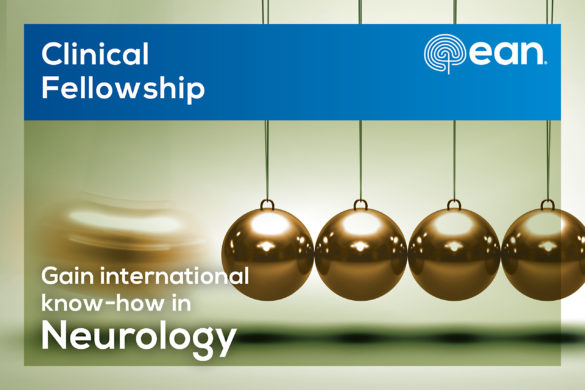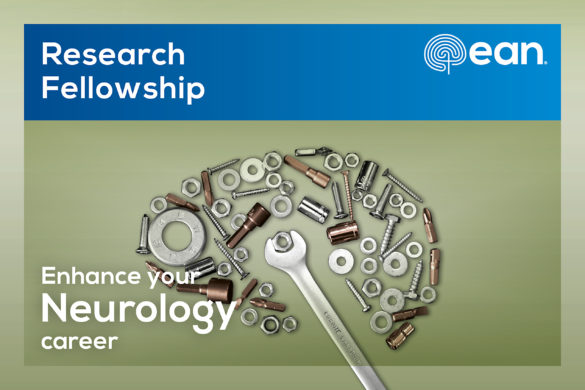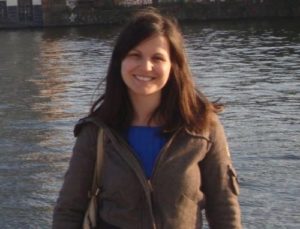 Report from Dr Célia Carina Machado, from Oliveira Santa Maria, Portugal visiting the Department of Epilepsy, National Hospital for Neurology and Neurosurgery, Queen Square, London, UK, under the supervision of Prof. Ley Sander
Report from Dr Célia Carina Machado, from Oliveira Santa Maria, Portugal visiting the Department of Epilepsy, National Hospital for Neurology and Neurosurgery, Queen Square, London, UK, under the supervision of Prof. Ley Sander
The Epilepsy department of the National Hospital for Neurology and Neurosurgery is internationally recognized for the excellence of the programs it develops in the evaluation and treatment (medical and surgical) of patients with epilepsy and is still a high quality scientific center.
The objectives of the internship included deepening the knowledge in the semiotic evaluation of epileptic seizures, clinical correlation with available complementary exams (video-EEG, SPECT, PET, MRI, neuropsychological study), epilepsy genomics, antiepileptic drug handling and surgical treatment.
During these three months, I observed and participated in the epilepsy department’s group routines. The internship was conducted under the guidance of Professor Ley Sander, although I had the opportunity to work with other members of the department.
My activities included:
– Epilepsy and sleep outpatient clinic at Queen Square. I observed 210 patients, of which 20 were first appointments (9.5%).
– Epilepsy and neurogenetics outpatient clinic at the Epilepsy Society, Chalfont.
– Wardrounds- telemetry and Gowers Unit – patients undergoing diagnostic and presurgical evaluations, including video-EEG telemetry, intracranial electrode recordings, SPECT; also sleep studies.
– Weekly multidisciplinary team meetings in which surgical candidates and sleep studies are discussed.
– Weekly Gowers round in which patients from all neurological spheres are presented and discussed.
– Wide range of lectures and talks arranged by the National Hospital for Neurology and Neurosurgery and UCL Institute of Neurology, including weekly clinical pathology conference.
– Participation in The Southern Sleep Forum and Queen Square GP Seminars on Sleep Disorders.
– Collaboration with the epidemiological registry of epilepsy clinics.
It was an amazing opportunity for medical and cultural learning. Thank you for the way Prof. Sander received me and everything he taught me. The fact of being observational is more limiting, but the result was very positive.
(ps: The city is very expensive mainly for who come from Portugal.)
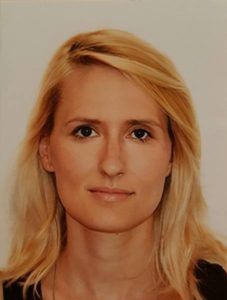 Report from Dr Marina Mioč, from Sisak, Croatia, visiting the Department of Biomedical and Neuromotor Sciences, Università di Bologna, Italy under the supervision of Prof. Giuseppe Plazzi
Report from Dr Marina Mioč, from Sisak, Croatia, visiting the Department of Biomedical and Neuromotor Sciences, Università di Bologna, Italy under the supervision of Prof. Giuseppe Plazzi
First I would like to express my most sincerely gratitude to European Academy of Neurology for giving me this opportunity.
I spend amazing six wees in Department of Biomedical and Neuromotor Sciences under supervision of Prof. Plazzi. I have to thank him and his team, especially dr. Pizza, dr. Antelmi, Marco Filardi and all the sleep laboratory technicians for the knowledge they shared with me.
During my six weeks stay I was included in every aspect of work in this Department.
The most important part of my stay was learning how to set different polysomnography montages and how to read polysomnography records. I was also able to monitor how the multiple sleep latency test and cataplexy test are done. I saw a variety of patients suffering from daytime hypersomnolence that had been hospitalized due to assessment and making the diagnosis. I did the rounds to see the inpatients in the Neurology ward and I took part in outpatient clinic with prof. Plazzi and dr. Pizza where I saw patients suffering from obstructive sleep apnea, hypersomnia and also many narcolepsy patients with or without cataplexy, patients with different forms of parasomnias, with restless legs syndrome and patients with REM sleep behaviour disorder.
I had an opportunity to spend a night in the hospital to do the polysomnography to the patient with several forms of parasomnias. He became „my“ patient and with help of my colleagues I wrote the case report presenting his medical problems and this case report is submitted to publish. There is also one case report that is in process of researching and writing so I hope that this good collaboration won’t end with my going home.
To conclude, this Clinical fellowship was a great educational opportunity and I would recommend it to all young neurology doctors. I hope I will be able to use what I have learned and implement as much as I can in my Sleep unit.
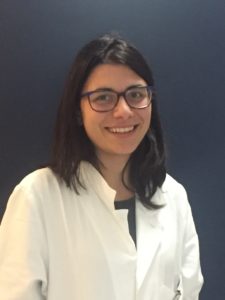 Report from Dr Luisa Sambati, from Bologna, Italy, visiting the Institut de la mémoire et de la maladie d’Alzheimer. Département des maladies du système nerveux. Hôpital de la Pitié Salpêtrière, Paris, France, under the supervision of Dr. Stéphane Epelbaum
Report from Dr Luisa Sambati, from Bologna, Italy, visiting the Institut de la mémoire et de la maladie d’Alzheimer. Département des maladies du système nerveux. Hôpital de la Pitié Salpêtrière, Paris, France, under the supervision of Dr. Stéphane Epelbaum
During my Clinical Fellowship Programme at the „Institut de la mémoire et de la maladie d’Alzheimer (IM2A), Hôpital de la Pitié Salpêtrière I have mainly focused on the preclinical phases of Alzheimer‘s disease.
Since 2009 I attended the Cognitive Disorders Center and the Movement Disorders Centre of the University of Bologna focusing on the evaluation of patients with subjective cognitive complaints and mild cognitive impairment both in dementia syndromes and movement disorders.
In order to further develop my experience and knowledge in the clinical and neuropsychological evaluation of subject at risk to develop dementia or movement disorders, I chose the “ Institut de la mémoire et de la maladie d’Alzheimer” at the “Département des maladies du système nerveux” of the “Hôpital de la Pitié Salpêtrière, AP-HP” that has an outstanding reputation in the clinical and instrumental evaluation of patients with dementia, in particular rare form of dementia and young-onset Alzheimer Disease. This Institut is considered as an opinion-leader in clinical and instrumental evaluation of subjects and patients with cognitive disturbances, not only because of the considerable number of assisted patients, but also because of the fundamental scientific impact of its published works, including the recent clinical and research definition of new criteria for Alzheimer Disease.
My experience has been very stimulating and very important for my knowledge in the field of neuropsychology, dementia and neurodegenerative disorders, both in preclinical and clinical stages of disease. I attended the Institut from May, 02 to June 16, 2017, in the context of the Clinical Fellowship Programme, and I will continue attending this Institut till Octorber 31, 2017.
During my stay I have broadened and deepened my knowledge on neuropsychology in patients with neurological disorders, in particular neurodegenerative disease. I attended patient consultations where I learnt the selection criteria for inclusion in preclinical and clinical observational and interventional studies conducted at the IM2A.
I participated in the multidisciplinary collegial discussion concerning patients and candidate to the different protocols. During this period I mainly focused on the early detection of clinical, instrumental and biochemical biomarker of patients with memory disturbances and subjects at risk to develop Alzheimer Disease. Regading this topic I focused on the clinical evaluation of the preclinical stages of Alzhimer diseases evaluating patients with Subjective Cognitive Decline. I take part to the evaluation of the awareness for cognitive deficit in this subjects through validated questionnaires and of the cognitive performances through neuropsychological testing. I partecipate to the initial selection of this patients, discussing on clinical and instrumental criteria, and to the strategies aimed at diagnosis comunication and treatment possibilities, including inclusion in clinical trials. I got the opportunity to take part to the discussion on the clinical research management.
Moreover I attended clinical and instrumental evaluation of patients with language abilities disorders focusing on the selection of patients with neurodegenerative disorders and of patients with parkinsonian features focusing on the differential diagnosis with the Alzheimer pathology. To learn more about cognitive impairment and dementia syndromes, I regulary l attended seminars and meetings organized at the IM24.
I’ve been involved in teaching and clinical activities and I participated in some research projects. Furthermore, I interacted very well with the team and the other personnel and I had the possibility to discuss about the patients and the current literature on the topic both with neurologist, psychologist and the research staff.
I think that this has been a very important possibility to broaden my knowledge on the specific topic of the Clinical Fellowship Programme and depth of understanding both on clinical and research activities concerning neurodegenerative diseases.





